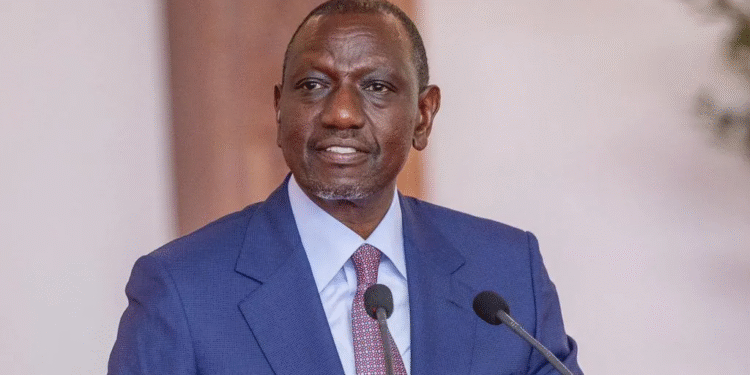Kenya’s President William Ruto has issued a controversial order authorizing police to shoot protesters in the legs to incapacitate, but not kill, those caught vandalizing property or targeting businesses.
“Anyone caught burning another person’s business or property should be shot in the leg, hospitalised, and later taken to court. Don’t kill them, but ensure their legs are broken,” Ruto said during a public address, sparking outrage from human rights groups and the UN.

The statement follows a violent wave of anti-government protests that erupted on Monday across 17 of Kenya’s 47 counties. The Kenya National Commission on Human Rights (KNCHR) reports that at least 31 people were killed, over 100 injured, and 532 arrested. Police figures, however, put the death toll at 11.
The protests, initially organized to mark the anniversary of the pro-democracy Saba Saba movement, quickly escalated into deadly clashes, with demonstrators chanting slogans such as “Ruto must go” and “wantam” (one term). The protests have been fueled by rising unemployment, a struggling economy, and public anger over police brutality and the death of activist blogger Albert Ojwang in police custody last month.
In response to criticism, Ruto defended police actions and warned his political opponents against using protests to seek regime change. “Kenya cannot and will not be ruled through threats, terror, or chaos. Not under my watch,” he declared, insisting that leadership transitions must come through elections, not demonstrations.
International and domestic rights groups, including the UN, have accused Kenyan authorities of using excessive force. “Lethal ammunition, rubber bullets, tear gas, and water cannons were used,” said Ravina Shamdasani, spokesperson for the UN High Commissioner for Human Rights. She added that recent incidents were “deeply troubling,” particularly the death of a 12-year-old girl hit by a stray bullet at her home in Kiambu.
Opposition leaders have accused the government of unleashing armed gangs using unmarked vehicles to intimidate protesters, especially in opposition strongholds. They also announced a national boycott of businesses linked to Ruto’s administration and vowed to continue resisting what they described as “a hostile regime.”

The KNCHR has called for independent investigations into the killings, arbitrary arrests, and destruction of property. Two hospitals were also reportedly attacked and looted during the chaos.
Chief Justice Martha Koome warned that the ongoing violence threatens Kenya’s democratic values. Meanwhile, President Ruto acknowledged the country’s high youth unemployment but claimed his administration is the first to actively address it, questioning why he is being targeted more harshly than previous leaders.
“You can call me whatever names you want, but I will make sure there is peace and stability in Kenya,” he said.









